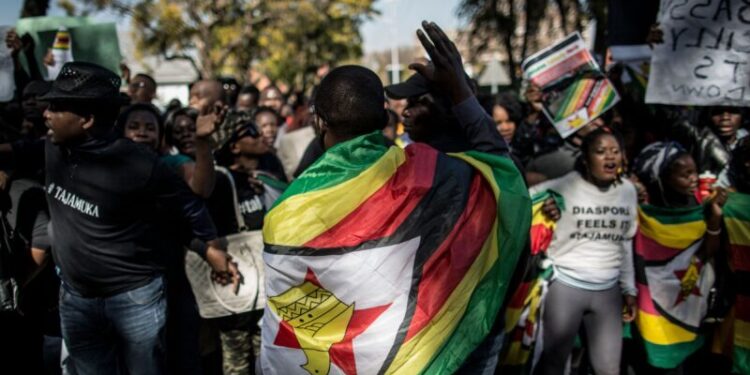Zimbabweans in the UK held a “Walk for Freedom” protest in Blackburn to condemn President Emmerson Mnangagwa’s government for alleged heavy-handedness and demand the release of journalist Blessed Mhlanga. This protest highlights the growing concerns about the government’s response to dissent and its implications for Zimbabwe’s stability.
The Mnangagwa administration has faced criticism for suppressing human rights, particularly freedom of expression and assembly. Amnesty International notes that the government has misused laws to target dissenting voices, limiting political debate and civic space. The Criminal Law (Codification and Reform) Amendment Act of 2023 is seen as a tool to suppress dissent, with vague and overly broad terms that open it up to abuse.
Their key concerns were the following:
– Suppression of Dissent: The government has intensified efforts to suppress peaceful protests and dissenting opinions.
– Misuse of Laws: Laws like the Criminal Law Act and Cyber and Data Protection Act have been used to target critical voices.
– Human Rights Violations: Abductions, arrests, and harassment of activists, journalists, and opposition members have increased.
The protest in the UK is part of a broader pattern of diaspora communities speaking out against human rights abuses in Zimbabwe. The government’s response to these protests and criticisms will likely shape the country’s stability and human rights landscape.
end//..










